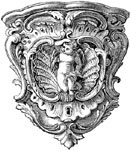
Integrated Art: Expressions of a Deified Reality
GUEST COLUMN
Driven by His inestimable love for man, the Son of God assumed a mortal nature, which granted Him a threefold love for mankind. That is to say, Christ loved with a divine will, a human will, and true human affections. Ever engaged in the creative act of love, His powers were perfectly realized, ordered for the glory of the Father and the good of mankind. In Christ, man is met with the most profound and integrated of loves, which endlessly invite imitation and recompense.
That we may follow Christ’s example and obey His command to love God with our whole heart, soul, mind, and strength, we must realize our own powers to love, integrating them into and submitting them to the divinizing fire of the Godhead. Deeply assimilated, this love must overflow into outward expressions of every kind; for what love does not seek to declare itself in a thousand ways, striving to make itself known? These professions of devotion, manifest in every art, form the building blocks of culture.
If this is so, we must ask if modern culture reflects this mature and flourishing reality. If so, it would speak to the spiritual development of individual members of the Church. If not, we must acknowledge a cultural dearth that demands a re-examination of our approach to our own humanity and to Christ’s divinity. For love is ever active, and its fruit is manifest in countless signs of its invisible presence, corresponding with the twofold nature of man as body and spirit.
Christ, the exemplar of man, poured forth praise in many forms of art. If we are tempted to imagine Him stoic, the Gospels correct us on that point. The Evangelists describe Him as fully alive, expressing love in word and deed, silence and song, parable and liturgy. In this sense, Christ perfects the human avenues of communication, manifesting charity in the literary genre of storytelling (cf. Lk. 15), in the musical form of hymns (cf. Mt. 26:30), in the recitation of verse (cf. Mt. 27:46), in the preparation of communal meals (cf. Jn. 21:9), and in the mystery of liturgy (cf. Lk. 22:15).
You May Also Enjoy
Our baptismal grace calls us to evangelize, and our distinctively lay task is to restore to people their lost human dignity and hope by bringing Christ to them.
The lack of a stable liturgical model from some golden age does not mean that the things of every culture and age are equally suitable for solemn liturgy.
The Church seems to choose to appear as in decline artistically, liturgically, and inspirationally.

